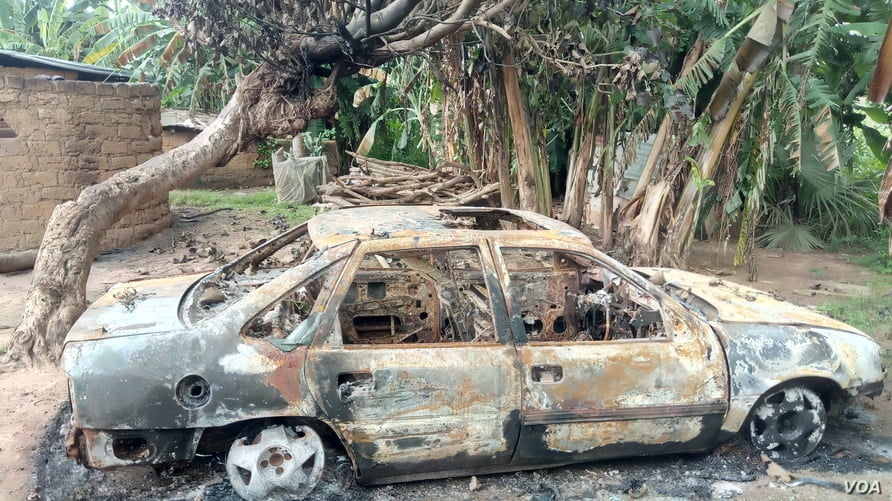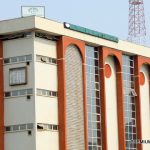It’s a roughly three-hour drive from the main city of Kaduna to Kurmin Masara village in southern Kaduna state, the latest hot spot for the sectarian violence that seems to plague northwestern Nigeria.
Dozens of people were killed there during an overnight raid that lasted nearly six hours during the pre-dawn hours of August 6.
Like other survivors, Michael Bagudu counted his losses while scouring through burned ruins, looking for remnants of his life.
“They came with two trucks and carted away my food, couch, mattresses,” he said. “They came several times, and when they had taken all they wanted, they burned the house.”
Another survivor, Martina Andrew, barely escaped through the bushes to a nearby village in Nassarawa when gunmen raided her home in Kaduna.

She groaned as she said her husband and two sons had been killed before the house burned to the ground.
“They came that night chanting, ‘The land is ours, the governor is ours.’ They killed my children and said they’ll return and kill us all,” she said.
Sectarian violence has plagued Kaduna state for decades, claiming thousands of lives and forcing thousands more from their homes. In late July, gunmen killed at least 43 people in the southern part of Kaduna, pushing the death toll to 178 from violence in the region this year.
The fighting in southern Kaduna is mainly between nomadic settlers or herders and farmers. Issues around land use and ownership are the root cause of the crisis, but the sects are also divided along religious lines.
The escalation in fighting means many people are being displaced. An informal camp for displaced people that began with about 900 residents is now home to more than 3,500, said the camp leader, the Reverend Gambo Waziri.
“It started actually on personal grounds,” Waziri said. “We’re not attached to any organization; we’re not attached to any body; we’re not attached to the government. It just started out of the compassion we have for these people that are passing through all these things.”

Nigerian authorities have deployed special forces to several flashpoints in the region and have so far arrested eight suspects. But local community leaders and rights groups accuse authorities of willful neglect.
Security experts like Kabir Adamu blame Nigeria’s justice system for the recurring violence.
“Over time when the first set of killings occurred, the criminal justice system failed to arrest the perpetrators or instigators and to punish them, unfortunately,” Adamu said. “The deterrent factor within our criminal justice system never worked. Others who saw no one was punished also decided to start doing the same thing.”
Unless peace is restored, many more villages are at risk of attack, and victims like Martina will be away from home for a long time.
VOA AFRICA







2 Comments